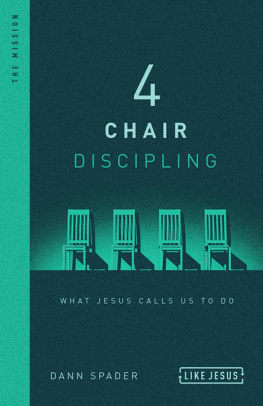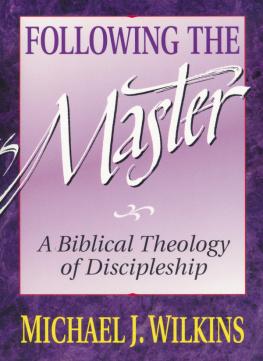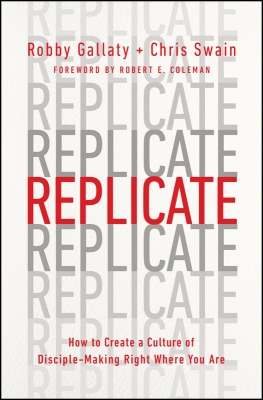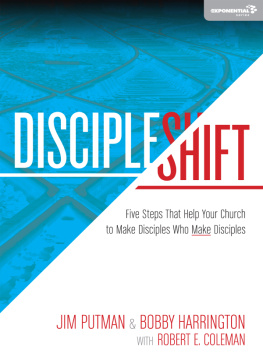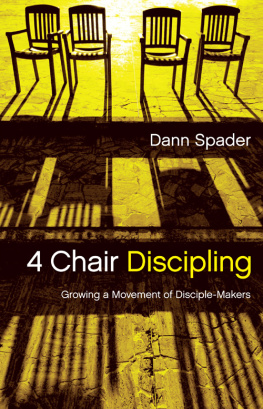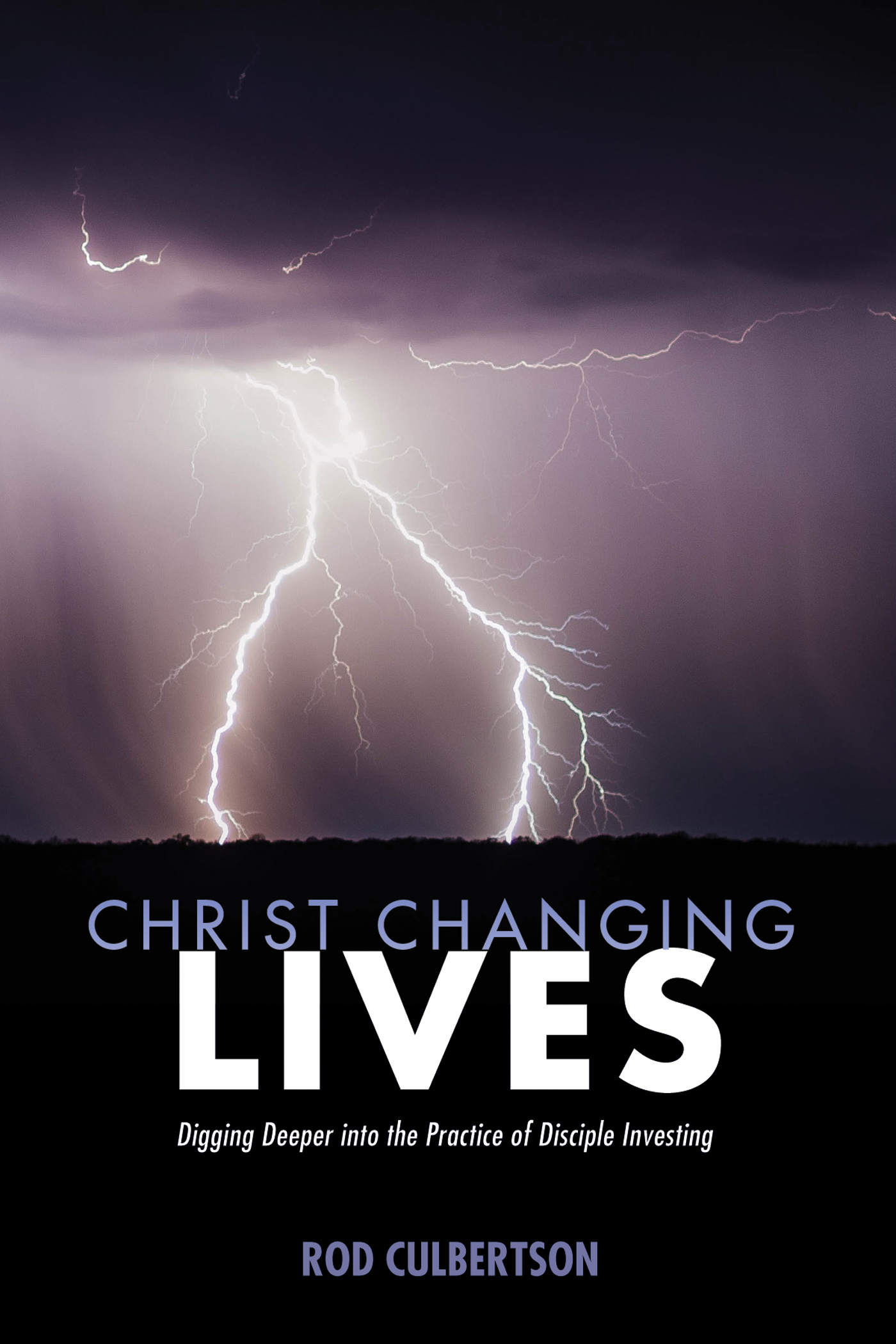A special word of thanks must be given to my RTS Charlotte teaching assistant, Ms. Anna Unkefer, who spent countless hours editing this work and refining it for publication. She is an invaluable asset in my efforts toward publishing the books I have written. Also, I must thank one diligent reader of this work, who most certainly helped to improve it with her observations, Mrs. Karen Chacko, who provided many fine contributions to an almost finished product. Both of these very capable ladies assistance is deeply appreciated by the author.
My (Brief) Personal Story
I have always been a part of the local church. Raised in a conservative, fundamental Southern Baptist culture for the first seventeen years of my life, I observed and learned much about the Christian life. Whether I was a Christian during those years is a question that is difficult for me to answer. But I am convinced of one undeniable reality: as a child growing up, the church discipled me through almost every activity; and there were plenty of opportunities. I attended Sunday School, Sunday morning worship, Sunday evening Training Union (Christian Education), Sunday evening worship, mid-week Royal Ambassadors (Southern Baptist boys program), Vacation Bible School, multiple week-long revival meetings, gatherings sponsored by men in the church, and extra-curricular sports. My mother, who took me to all of these, was wholeheartedly committed to everything the church did. I was present whenever the church doors were openwithout exception (faking illness was not an option). The only activity I never participated in was the church camp program; I was shy and didnt want to spend the night in strange places (plus I hate camping and flunked out of Cub Scouts in the second grade!)
In reality, I was saturated with (or immersed in) the teachings of Scripture and Southern Baptist doctrine. My teachers, mothers friends, and my coaches loved me, though frankly, I mostly didnt notice or care. Yet I am convinced that the vestiges of my training still remain rooted in the strict lifestyle of Southern Baptist behavior. I heard truth, saw love (although I didnt recognize, receive, or apply it), and lived out external righteousness with a passion for conformity to Gods law and acceptance by whomever was watching. Although I had been discipled, I was not a true disciple of Jesus Christ.
When I attended college at age seventeen at the University of South Carolina, a hundred miles from home, I was sure I would leave God and my religious upbringing behind. But I could not run from God. My rigid training prevented me from skipping church, even on my very first Sunday away from home; the guilt was too great. But God used that guilt to reach my deep, heartfelt needs, and I surrendered my life to Christ (reluctantly, I might add). Having been raised in the church, I was discipled as what I would term a (non-baptized) covenant child. But being now converted, I became a true follower of Jesus Christ. I joined First Baptist Church of Columbia, South Carolina, another Southern Baptist church, affectionately known as The Fellowship of Excitement. I also got plugged in with two parachurch campus ministries while in college, the Navigators and Campus Crusade for Christ (now known as Cru). God worked in me, changing every facet of my life. The Navigators stressed biblical knowledge and Scripture memory. Cru spoke incessantly of the love of God (a theme which was contagious), the need for constant evangelism and outreach, and reliance upon the Holy Spirit in the Christian life. First Baptist was biblically based like my home church, but there was an atmosphere filled with the life of the Spirit that I had never experienced before. God sent people into my life who taught, demonstrated, and modeled the life of Jesus Christ. I cannot list them all and cant even remember all of their names, but this I know: I was finally alive! I could not imagine anything more meaningful than being a disciple of Jesus.
Eventually, I became a student leader in Cru and was involved in discipleship relationships with a number of students and non-students. Through the years, both friends in Inter-Varsity Christian Fellowship and IVP authors, as well as Columbia Bible College (now Columbia International University) influenced me. I attended First Baptist Church of Taylors, South Carolina where I was able to serve the church and even disciple others, particularly during the summer months. Eventually, I left my Baptist circles for Bible churches, and in time, I became a convinced Presbyterian. Churches which made a huge impact on my spiritual development after college, and to whom I am indebted for all sorts of learning and growth, are: Eastside Presbyterian in Greenville, South Carolina; Covenant Presbyterian in Columbia, South Carolina; Faith Presbyterian in Gainesville, Florida; Christ Community Presbyterian in Clearwater, Florida; Stonebridge Presbyterian Church and Christ the King Presbyterian Mission (now closed), both in Charlotte, North Carolina.
Over the years, I have been discipled by pastors, friends, peers, Scripture, prayer meetings, evangelism training and opportunities, Sunday school teachers, church deacons, university and seminary professors, conference and seminar speakers, pamphlets and books, radio and television ministers, various film and video series, Christian musicians, choral events, Christian service opportunities, and a host of others. The Holy Spirit was in charge of the entire process because he is truly the one who orchestrates the discipleship process.
Discipleship is following Jesus. Discipleship is a process which involves a full-orbed, multi-dimensional impact by the Holy Spirit in the life of the follower of Jesus Christ. Discipleship is simply God changing us through the process of gradual and progressive sanctification (growth in Christlikeness). He uses the means of grace, applied in various fashions. He also uses people, his servants, to assist in the change he desires, and all of this is done sovereignly through his Holy Spirit. And, as we all have experienced, he works in his providence, on his designated timetable for our lives.
Introduction
U nder the inspiration of the Holy Spirit, Luke, the author of Acts, perceptively enjoins the reader in the unfolding drama of the growth of the early church. Portraying Christs final words prior to his ascension, Luke presents the outline of the book, and records his version of Jesuss Great Commission, But you will receive power when the Holy Spirit has come upon you, and you will be my witnesses in Jerusalem and in all Judea and Samaria, and to the end of the earth. The impact of this resurrection reunion scene, in which Christ gives his disciples their marching orders, along with the assurance that they will be able to obey (the subsequent falling of the Holy Spirit at Pentecost, as promised by Jesus, provided the power and the impetus for the message of the gospel to go forth with great effect), is overwhelming. The book of Acts is indeed a book recording the acts of the Holy Spirit through the apostles. The original reader, excellent Theophilus (Lover of God), as well as the contemporary reader, are both able to join an exciting narrative of gospel declaration, with its many twists and turns of events, leading the first-time reader into much astonishment and curiosity as the drama unfolds. The Holy Spirit indeed builds the church of Jesus Christ and the Kingdom of God through the instruments of Gods own choosing: human hands (with a few miracles thrown in for attestation that this is the living Gods work!)


